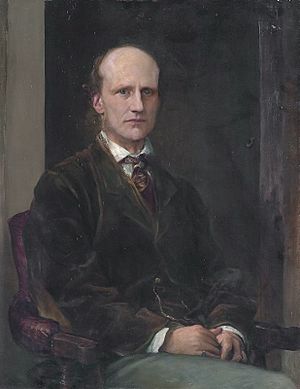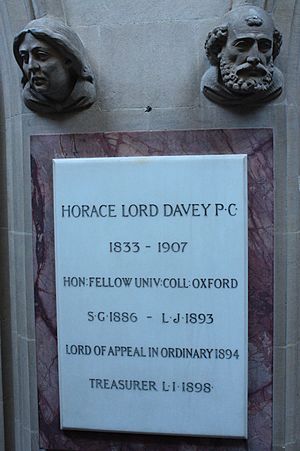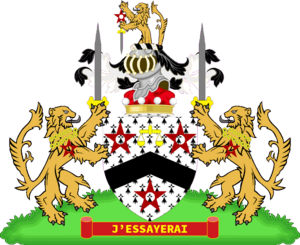Horace Davey, Baron Davey facts for kids


Horace Davey, Baron Davey (born August 30, 1833 – died February 20, 1907) was an important English judge and a Liberal politician. He was known for his sharp legal mind and his work in the highest courts of the United Kingdom.
Contents
Early Life and Education
Horace Davey was born in Camberwell, Surrey. His parents were Peter Davey and Caroline Emma Pace. He went to Rugby School, a well-known school, and then to University College, Oxford.
At Oxford, Horace was a brilliant student. He earned top grades in both Classics (ancient Greek and Roman studies) and Mathematics. He also won special awards for his math and law studies. He became a Fellow of his college, which is a special academic position.
Becoming a Lawyer
After finishing his studies, Horace decided to become a lawyer. He joined Lincoln's Inn, one of the four main legal societies in London, in 1857. In 1861, he was "called to the Bar." This meant he officially became a barrister, able to argue cases in court.
Soon after, in 1862, he married Louisa Hawes Donkin. Her father, John Donkin, was a civil engineer. Horace started his legal career by writing reports on new court cases. This helped him learn a lot about the law. He then worked for a senior lawyer named John Wickens, learning about a special type of law called Chancery (Equity) law. He even became Wickens's secretary when Wickens became a judge.
Because of his great skill, Horace Davey became a Queen's Counsel (QC) in 1875. This is a special title given to experienced lawyers. He quickly became known as one of the best lawyers in the country. People like Viscount Alverstone called him "the most brilliant barrister." He was especially good at arguing difficult legal points.
Legal and Political Career
Horace Davey focused on Chancery law, which deals with fairness and property rights. He built a very successful legal practice.
In 1880, he was elected to Parliament as a Liberal representative for Christchurch. However, he lost his seat in 1885. When William Ewart Gladstone became Prime Minister again in 1886, Horace Davey was made Solicitor General for England and Wales. This is a senior legal role in the government. He was also knighted, meaning he received the title "Sir."
Even though he was Solicitor-General, he didn't have a seat in the House of Commons for a while. He tried to get elected in Ipswich and Stockport but lost. Finally, in 1888, he won a seat for Stockton-on-Tees, but he lost it again in 1892.
Important Legal Cases
Horace Davey was involved in many major legal cases during his time. He was a lawyer for Oxford University and for the Charity Commissioners. He worked on important cases about business, property, and even a case involving a bishop.
In 1893, he became a Lord Justice of Appeal, which is a high-ranking judge. The next year, in 1894, he was made a Lord of Appeal in Ordinary. This meant he became a life peer with the title Baron Davey. As a Lord of Appeal, he helped make final decisions on important legal cases in the highest court. His judgments showed his deep knowledge of the law. He also supported a law passed in 1906 to control gambling.
Judicial Career Highlights
After leaving Parliament for the last time, Horace Davey continued his judicial work. He was appointed to the Court of Appeal in 1893. He also became a member of the Privy Council, a group of advisors to the monarch.
He was involved in several landmark cases that shaped British law:
- Monson v. Tussauds Ltd (1894): This case helped decide the future of a famous museum.
- Salomon v. Salomon (1896): This case set an important rule about how companies are seen as separate from their owners.
- Allen v. Flood (1898): This case was part of a bigger discussion about the rights of trade unions.
- Walter v. Lane (1900): This case was about copyright law for reporters.
- Noakes Co v. Rice (1901) and Bradley v. Carritt (1903): These cases dealt with rules about mortgages.
In 1905, Horace Davey hoped to become the Lord Chancellor, the highest legal officer in the government. However, he was not chosen for the role. Many people, including Lord MacNaughten, considered him "the most lawyer of his day," meaning he was an incredibly skilled and knowledgeable legal expert.
Other Important Roles
Horace Davey held several other important positions:
- He was a lawyer for Oxford University from 1877 to 1893.
- He received an honorary degree from Oxford University in 1894.
- In 1895, he became a Fellow of the Royal Society (FRS), a prestigious group of scientists.
- He was the Treasurer of Lincoln's Inn in 1897.
- He chaired a Royal Commission that helped reorganize the University of London from 1897 to 1898.
- He became a Fellow of the British Academy in 1905.
Family and Legacy
Lord Davey married Louisa Donkin in 1862. They had two sons and four daughters.
Horace Davey passed away in London on February 20, 1907, at the age of 74. He died from acute bronchitis. He was buried three days later in Forest Row, East Grinstead. He is remembered as one of the most brilliant legal minds of his time.
Arms
 | DeHart Hubbard |
 | Wilma Rudolph |
 | Jesse Owens |
 | Jackie Joyner-Kersee |
 | Major Taylor |


